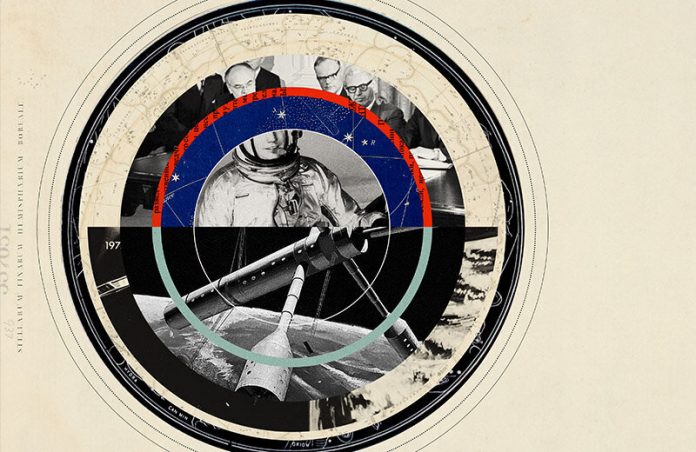As many countries, companies and individuals are intensifying their space exploration and programs, questions about rights and ownership of manned space missions are coming forward in public debates.
Italian astronomer and physicist Galileo Galilei wrote a letter to the Grand Duke of Tuscany in early 1610. Galileo stated in his letter that he had observed moons of Jupiter by his improved telescope lens. Galileo proposed the stars should be named after the royal family as “Medicea Sidera” or Medicean stars, as he wanted to secure the grand duke’s patronage.
Galileo was not the first or the last person to claim stars in the name of people on Earth. The names of celestial bodies are now determined by the International Astronomical Union. The Union uses a systematic naming system.
Countries, companies and individuals are trying to go beyond Earth’s atmosphere to discover nebulous possibilities. But how these companies and individuals explore space will not be defined by ambition or competition. This will be determined by scientific realities like advanced telescopes and robotic astronauts.
National projects
The modern space era took place when the Soviet Union launched the world’s first satellite, Sputnik in October 1957. United States was alarmed by Soviets’ technological prowess and its ramifications for their military strength. Then the U.S. not only accelerated its space program but also increased its weapons capability which shifted the Cold War into high gear.
Since then, outer space has become a backdrop and it has exposed our best and worst traits. For many centuries, astronauts and scientists from various countries have worked together to unlock the mysteries of space. This cooperation is evidently seen in the International Space Station. This space station has been launched 23 years ago. The ISS was a political and technological marvel. The U.S., Russia, Europe, Japan and Canada together operate the space station. Astronauts from 19 countries have visited the orbital laboratory.
Space tourism has also started to unfold. Recently, actor William Shatner had a ride in the Blue Origin suborbital capsule. The space tourism project has been developed and financed by Jeff Bezos. In previous decades, the space race was limited between the U.S. and the Soviets. But now it is multipolar, with China, India and other nations. All these nations are investing much in space exploration in the late 20th and early 21st centuries. Right now, 72 nations have government space programs. They have their own satellite operation and planning the full launch of spacecrafts.
An associate professor of international relations, Slavic languages and literatures and environmental studies at USC Dornsife, Robert English said, “In the U.S., we have rovers on Mars, we’ll be launching the [James] Webb space telescope soon and the Lunar Gateway will eventually serve as a spaceport for manned exploration of the moon, Mars and maybe beyond. China has moon and Mars rovers, too, plus the Heavenly Palace Space Station, while Russia continues a smaller though active space program of its own.”
But projects such as ISS has aimed to foster a sense of scientific cooperation and not competition, terrestrial political alliances and divisions. This year Russia has threatened that it will build its own space station, if the U.S. didn’t drop sanctions on its space program. U.S. is worried about Chinese and Russian anti-satellite capabilities. China and Russia are worried about America’s Space Force and secretive space plane project.
China’s space program is fostering international relationships through joint infrastructure programs and it is not for some looming interplanetary imperial ambition.
England is concerned about the fact that these space projects are creating a hostile international environment. This situation is similar to the nuclear arms race of the 1950s and ’60s. The Outer Space Treaty has placed some limits on military activities in space. But this treaty has vague description of some issues such as space mining and ownership of resources. China, Russia, the U.S., India and North Korea are actively working on hypersonic missiles which will stretch the treaty even further.
For whom?
Though a handful ofcountries and few wealthy individuals are flexing their cosmic muscles but space belongs to everyone or maybe no one. Space is an open field. It is a field of unowned things that can belong to the first person who claims them.
A powerful nation or a billionaire are not the traits to entitle outer space. Scientists suggested that individuals, companies and nations should view space as we view oceans. Oceans do not have any owner but it is regulated by many international treaties.
The other limitations
But billionaire and space entrepreneur Richard Branson has established a colony on Mars. But the exposure to the hazards of space has health implications on human body. Astronauts are exposed to high levels of cosmic radiation which cause a high risk for cancer and cardiovascular disease. In microgravity environment, the body’s fluids redistribute themselves uniformly. This causes problems with rapid fluid loss and can also cause deformation of the eyes. Microgravity causes the loss of muscle mass. This affects heart health and bone density. If humans were capable to travel to Jupiter in spacecraft, that trip would have taken at least five years.
But astronomers have agreed upon the importance of space exploration. Astrophysics and planetary science communities have agreed that manned space travel is impractical because of vast timescales. It also includes radiation environment of our solar system and astronomical expense. They say, space exploration should be done by using robotics and advanced telescopes like NASA’s Juno probe and the Mars exploration rovers. This is a safer and efficient way to study the environment within our own solar system.

